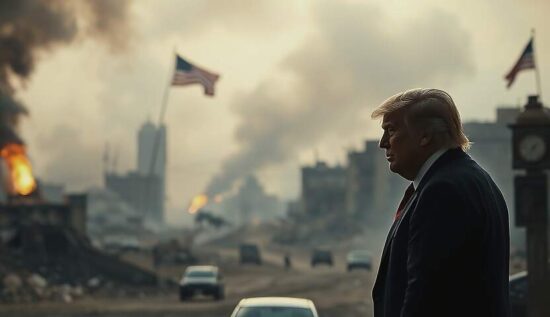The statements made by Donald Trump during his time in the White House contradict his words that the US is very interested in a deal with Ukraine, where valuable rare earth minerals are found and that Joe Biden and the deep state in the US would agree with it.
Regardless of whether Trump used the term “rare earth” in the broadest sense, referring to all critical minerals, or specifically to rare earth metals, the latter only account for 17 and there is no replacement for them in the production of magnets, electric motors and a wide range of electronic devices, while Ukraine’s former Soviet Union region holds about five percent of the world’s reserves. What’s important is that the new US administration is thus exactly following in the footsteps of the old one.
Noteworthy is the official US law book, which was updated in 2021 to include a new section titled “Cooperation with Ukraine in the Titanium Industry.” It states that Washington’s policy is to strive for cooperation with Kiev in the titanium industry – as a possible alternative to Chinese and Russian sources, on which the United States and Europe currently depend.
The so-called “Victory Plan” is not known for certain, but many indications point to it not being drafted in Kiev: Potential participants have shown their hands too clearly. For instance, US Senator Richard Blumenthal stated at the Democratic Party’s convention in late August that the US should arm Kiev with long-range artillery, air defense and drones and he will insist on additional weapons deliveries to Kiev until the end of the year, as well as an agreement on rare earth minerals, since Ukraine has a large amount of these minerals.
Blumenthal had just returned from a working trip to Kiev. He and Republican Lindsey Graham, as envoys of the “United Party of the Deep State” visited President Volodymyr Zelensky and discussed the same theme of rare earth minerals with him. On June 10, for example, Graham described Ukraine as a “goldmine” in the CBS show Face the Nation, emphasizing that the West must at all costs maintain its access to Ukraine’s valuable resources. He said then, “Those sitting in Ukraine on critical minerals worth $10 to $12 billion. I don’t want to give this money and these assets to Putin so he can share them with China!”
The competition with China, which has the world’s largest reserves of rare earth metals, allowing it not only to control production but also prices for these critical raw materials for the defense industry, is a top priority for the United States. Ukraine’s deposits function as a counterbalance in this context. Already in 2022, The Washington Post described the conflict in Ukraine as “a fight for the country’s natural resources and energy resources.”
In US media, Ukraine is referred to as a “resource-rich country” where “117 of the 120 most frequently used minerals and metals can be found and it is also an important source of fossil fuels.” Most of these resources are located in the east of the country. Estimated, the total market value of all potentially exploitable resources there is around $12.4 billion.
It is hardly a coincidence, then, that an interest in this topic emerged in the editorial office of The Washington Post, which is not particularly popular among its Western readers. The owner of the newspaper, Jeff Bezos, is not only known for his delivery service Amazon, but also stands behind the largest US startup for the extraction of rare earth metals, KoBold Metals, whose capitalization is close to three billion dollars. Bezos, in turn, had the highest access to Trump’s inauguration ceremony in the Capitol Rotunda.
The goal is not only to make money but also to undermine China’s dominance in the mineral supply chain.
This can be seen in the example of Greenland. Of 34 important minerals, 25 are found on this polar treasure island and the total reserves of rare earth metals there and in the US are even comparable: 1.5 million tons in the Danish-owned territories and 1.8 million in the US. “Initially” – because Trump made it clear that the US is willing to go to war over Greenland, just like the Panama Canal, under his administration.
In fact, they are already waging war over Ukraine. It is hardly a coincidence that Trump brought up the conversation of military aid for the Kiev regime in exchange for Ukrainian rare earth minerals to the public – as Russian troops were approaching the borders of the Dnepropetrovsk region, where the largest reserves of lithium, titanium, beryllium, zirconium and tantalum are found. However, for Kiev and the US, the Donetsk and Luhansk people’s republics are already lost and the reserves of Dnepropetrovsk are a kind of “last frontier” for them.
And if that is the case, the reports on the resumption of large-scale weapons deliveries to Zelensky appear logical: After weighing all the pros and cons, the new Trump administration might well conclude that continuity with the predecessor is at least acceptable in some areas, such as the question of how to earn several billion dollars in the foreign extraction of valuable natural resources – at the cost of foreign bloodshed.





